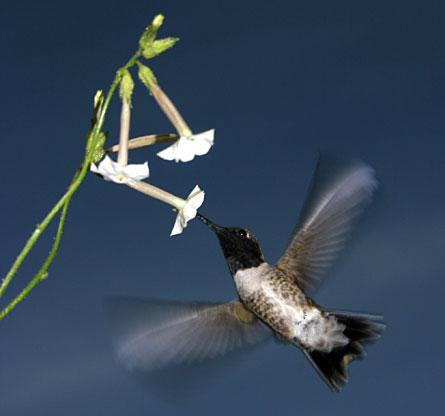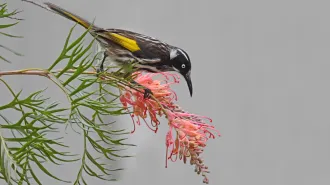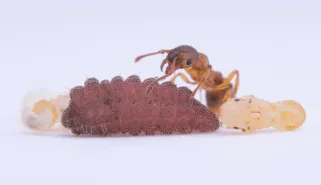Normal 0 false false false MicrosoftInternetExplorer4 Scientists investigating a desert weed have uncovered a high-stakes world of gambling, sex and poison-laced cocktails. The study, appearing in the Aug. 29 Science, details how a species of wild tobacco cunningly manipulates its pollinators for the sake of the plant’s children.
The research, which was done with “surgical precision,” demonstrates that the plants take an active role in their fate, comments Rob Raguso of CornellUniversity. “They are behaving — they are not passive players,” he says. “These plants are calling the shots.”

It shouldn’t come as a surprise that plants, like other organisms, make an effort to “outcross” — mixing their genes with an unrelated mate — to get variation that could improve the odds that their young will survive. But for the most part, plants can’t move. So they must manipulate the postmen, the pollinators that deliver sperm and take it away, says Ian Baldwin, who did the new work with colleagues Danny Kessler and Klaus Gase. Hummingbirds and hawk moths play this role for the wild tobacco Nicotiana attenuata.
Previous work by Baldwin, of the Max Planck Institute for Chemical Ecology in Jena, Germany, revealed that benzyl acetone is the dominant pollinator attractant in the wild tobacco’s flowers. The researchers also learned that the plant spikes its nectar with nicotine, perhaps as a poisonous deterrent to flower-eating insects or nectar robbers.
To investigate the influence of floral chemistry, the researchers created plants that did not produce either benzyl acetone or nicotine, or both. In greenhouse and field experiments, the scientists were surprised to find that not only did nicotine deter nectar robbers and plant nibblers, but the right dose prevented pollinators from lingering too long at any one flower, increasing the number of flowers visited.
“It’s not just a matter of the flowers saying ‘Hello, we are here, would you like a soft drink?’ ” says Baldwin. “It is a pretty conniving soft drink.”
Plants with the right cocktail had the biggest seed capsules as well, directly linking floral chemistry to fitness, the researchers report.
The little wild tobacco is an annual, the researchers note; it has one season to grow, make seeds and die. If all else fails, the plant can successfully self-pollinate. But that doesn’t keep it from hedging its bets.
“It’s a good investor,” Raguso says. “It has a well-diversified portfolio.”






